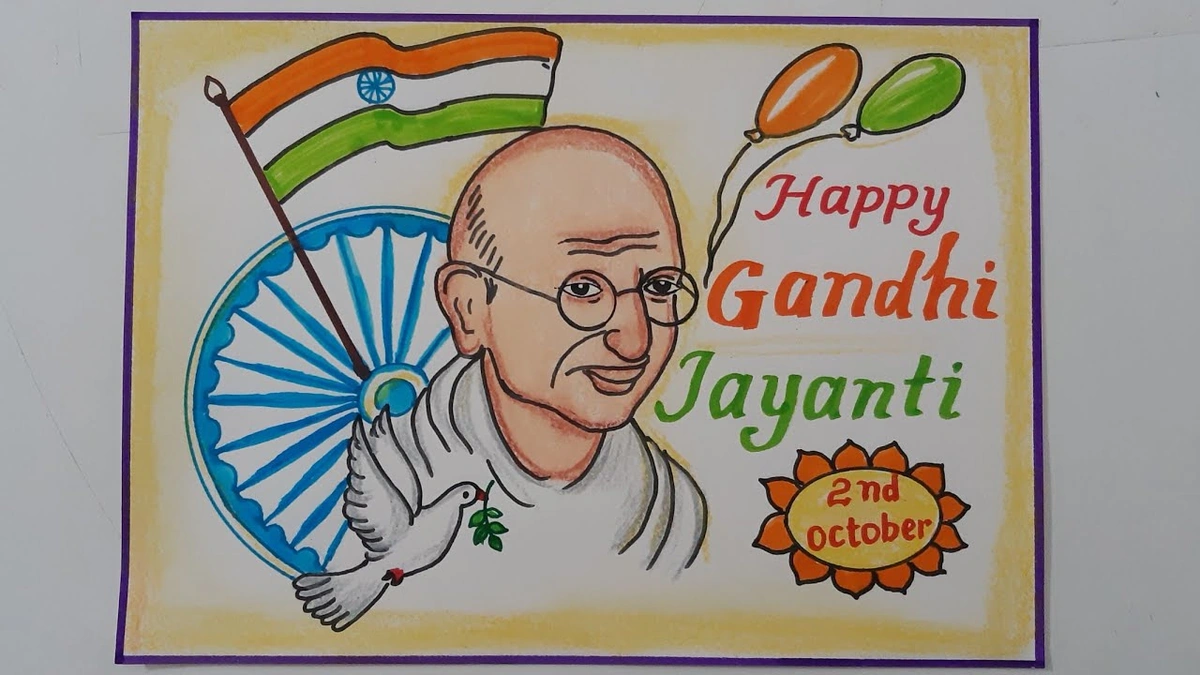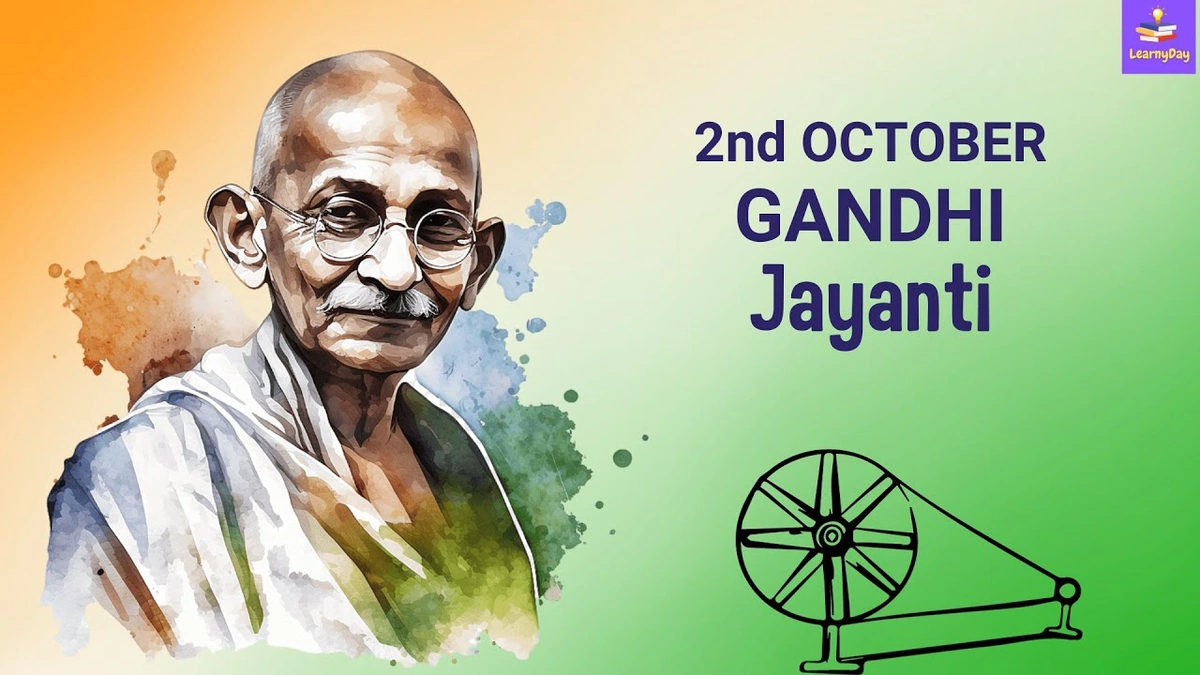2nd October | Beyond Gandhi Jayanti – What You Really Need to Know
2nd October. For most of us in India, it’s Gandhi Jayanti – a national holiday, a day of remembrance, and perhaps, a chance to catch up on some sleep. But let’s be honest – does it ever feel like more than just a holiday? What if I told you there’s a deeper significance to this day, one that goes beyond the usual tributes and ceremonies?
Here’s the thing: understanding the true essence of 2nd October requires a bit of digging – looking past the surface and understanding the ‘why’ behind it all. This isn’t just about celebrating a great man; it’s about understanding the principles he stood for and how they still resonate today.
The Enduring Relevance of Gandhian Principles

So, why does Mahatma Gandhi’s philosophy still matter in 2024? I initially thought it was just about nostalgia, but then I realized it’s far more profound. In a world increasingly driven by consumerism and instant gratification, Gandhi’s emphasis on simplicity, self-sufficiency, and non-violence is almost radical. Let me rephrase that for clarity – it’s a call to action.
Think about it. His concept of Swadeshi isn’t just about buying local; it’s about empowering local communities and fostering economic independence. His commitment to Satyagraha (non-violent resistance) offers a powerful alternative to the divisive rhetoric that dominates our news cycles. And his belief in Sarvodaya (the welfare of all) challenges us to think beyond individual gain and consider the collective good.
But, and this is crucial, it’s not about blindly following everything he said. It’s about critically engaging with his ideas and adapting them to the challenges of our time. What fascinates me is how his core tenets can be applied to everything from environmental sustainability to social justice. Learn more about social initiatives here .
Gandhi’s Influence on India’s Freedom Struggle
Let’s not forget the historical context. Gandhi’s role in India’s independence movement was, without exaggeration, transformative. Before him, the struggle was largely confined to the elite. He mobilized the masses, transforming it into a truly national movement. His methods of non-violent resistance, like the Dandi March, captured the world’s attention and put immense pressure on the British Raj.
What’s often overlooked, however, is the sheer audacity of his approach. Challenging a colonial empire without resorting to violence was unheard of at the time. It required immense courage, conviction, and an unwavering belief in the power of truth. But the impact was undeniable. Gandhi’s methods inspired countless other movements for social and political change around the world.
Applying Gandhian Ideals to Modern Challenges
Okay, so we know Gandhi was important, but how do we actually use his teachings today? A common mistake I see people make is treating his philosophy as some abstract ideal. But his principles are incredibly practical. Take, for example, the issue of environmental sustainability.
Gandhi advocated for a simple, sustainable lifestyle long before it became a global buzzword. His emphasis on reducing consumption, minimizing waste, and living in harmony with nature is more relevant than ever in the face of climate change. Similarly, his commitment to social justice can guide our efforts to combat inequality and discrimination in all its forms.
The one thing you absolutely must remember: Gandhian principles are not just about individual actions; they’re about collective responsibility. As per the guidelines mentioned in the information bulletin on the official website, community involvement is key to achieving meaningful change. Swaraj in every aspect is what he always preached for.
The Global Impact of Gandhi’s Teachings
Gandhi’s influence extends far beyond India’s borders. His philosophy of non-violent resistance has inspired leaders and movements around the world, from Martin Luther King Jr. in the United States to Nelson Mandela in South Africa. What fascinates me is how his message of peace and justice transcends cultural and political boundaries. Find out about influential leaders .
Even today, in a world plagued by conflict and division, Gandhi’s teachings offer a beacon of hope. His emphasis on dialogue, empathy, and understanding provides a powerful framework for resolving disputes and building a more just and peaceful world. According to the latest circular on the official UN website ( un.org ), the International Day of Non-Violence, also observed on 2nd October, recognizes the universal relevance of his principles.
Beyond the Holiday | Making 2nd October Meaningful
Ultimately, the true significance of 2nd October lies in its potential to inspire action . It’s not just about celebrating a historical figure; it’s about embracing the values he stood for and applying them to our own lives. So, this year, let’s go beyond the usual tributes and ceremonies. Let’s commit to living more simply, acting more compassionately, and working towards a more just and sustainable world. Gandhi’s legacy is not just a memory; it’s a call to action.
FAQ Section
Why is 2nd October celebrated as Gandhi Jayanti?
2nd October is celebrated as Gandhi Jayanti to mark the birth anniversary of Mahatma Gandhi, a key figure in India’s independence movement.
What are the core principles of Gandhian philosophy?
The core principles include non-violence (Ahimsa), truth (Satya), self-sufficiency (Swadeshi), and welfare of all (Sarvodaya).
How can Gandhian principles be applied to modern challenges?
They can be applied to promote environmental sustainability, social justice, and peaceful conflict resolution.
What is the significance of Swadeshi in today’s world?
Swadeshi encourages local production and consumption, fostering economic independence and community empowerment.
How did Gandhi influence the Indian independence movement?
Gandhi mobilized the masses through non-violent resistance, transforming the freedom struggle into a national movement.
So, there you have it. 2nd October isn’t just a holiday. It’s a reminder, a challenge, and an opportunity. It’s an invitation to look beyond the surface and engage with the profound ideas that shaped India and continue to resonate around the world. Let’s make this Gandhi Jayanti more than just a day off; let’s make it a day of meaningful action.













